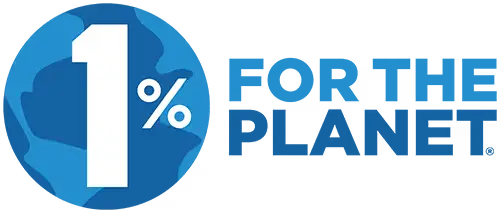Illuminous Marketing presented recently to a group of small business owners. The topic was How to Perform an SEO Audit on Your Own Website. One of the attendees asked a great question: “What is bounce rate? Is it the same as an email bounce?” The short answer is no, it is not the same as an email bounce. Google defines bounce rate as
“the percentage of visitors to a particular website who navigate away from the site after viewing only one page.”
This answer sparked a round of new questions regarding bounce rate such as what is considered a “good” bounce rate and whether time on site still triggers a “bounce.” But let’s be honest, at this point, you’re probably thinking, “Why do I even care?” It’s not the most riveting topic, but it IS an important metric for businesses to understand when evaluating their site. I’ll try to make it as entertaining as possible.
Why Should I Care About My Bounce Rate?
Bounce rate signals a number of things to both a website owner and to search engines.
1. Users aren’t finding what they need.
If users aren’t finding what they need on your site, they go back to the SERP (Search Engine Results Page) and select the next best answer to their query. This is important because, as you can see in the image above, this is an indication that your page is boring, off-putting, or in most cases it isn’t the right fit for the user.
As Avinash Kaushik famously said, “I came. I puked. I left.”
Which leads to our second point…
2. Search Engines think your website isn’t the right fit.
If a search engine thinks that they served the wrong result to a user’s query because many users are bouncing away, Google may not show that page in the future for that query. In layman’s terms, this means you just lost your ranking for this query.
(Note: this is an over-simplified example for illustrative purposes. Google’s algorithm is much more nuanced and multifaceted.)
3. A page is taking too long to load so the user hits the back button.
According to a recent research from Google, “As page load time goes from one second to five seconds, the probability of bounce increase by 90%.”
If a user can’t load your site, they can’t buy your widget, sign up for your event, share your blog post on social, or complete whatever action your goal might be.
A good rule of thumb is that a user will wait about 3 seconds for a page to load, especially on a mobile device. That sounds like a short amount of time, but if you think of yourself as the user, you can understand that you don’t have unlimited time to wait, or in many cases, unlimited data on your cellular plan. We subconsciously know that if a site is taking forever to load, it is likely a large amount of data, and that the browsing experience won’t be any better once this first page loads.
Are there other things that count as a “bounce?”
So glad you asked! Yes, bounces can happen in ways other than a user doing an organic search for your site, attempting to visit and then bouncing away.
- The user clicks on a link within your content that takes them to another website.
- The user clicked on an ad to get to your site and you’ve stripped everything away on the landing page except one Call to Action. If this call to action isn’t the action they are prepared to take, off they go.
- The user is just there to read your blog and takes no other actions.
- The user had your website open in another tab for a week and then closed it on Friday when they left for the weekend. You know you’ve done it.
- You don’t have your code implemented properly on all pages.
There are probably many more scenarios, but these are the most common.
So, What is Considered a “Good” Bounce Rate?
It depends.
What is the intent of your page? Is it a blog post with no content upgrades or interactive features? Is it your contact page where you’re providing a phone number or address? Or is it your homepage where visitors should be learning about services and navigating through your site?
As most experts would agree, a bounce rate is a signal that needs to be analyzed in order to understand the level of satisfaction or alarm.
Is there a time component to bounce rate?
For instance, what if someone spends 10 minutes on one page of my site, but then closes the tab?
Is There a Time Component to Bounce Rate?
For instance, what if someone spends 10 minutes on one page of my site, but then closes the tab?
Google has an issue with tracking just one page of your website with no other actions being taken, such as going to another page. So if a user spends 10 minutes on your blog and then leaves, it will still count as a bounce. There are many ways to measure the VALUE of that visit other than your bounce rate.
For instance, you can complete a time on site goal for blog pages of 2 minutes or you can track scroll depth. You can also track direct traffic return users who could be your avid blog readers who just visit your site every week when they know you publish your blog.
There are some experts who say that if you have a bounce rate over 50% that it is cause for alarm. As we see in the above scenarios, it should be considered on a case-by-case basis.
One interesting solution could be to set alerts if your bounce rate suddenly increases by 20%. You can set these alerts by page, by source of traffic such as social or direct traffic, or the audience overview which would be for your whole website. A sudden increase could be a signal that something is broken or your site is ranking for something it shouldn’t.
So now you understand a bit more about bounce rate. When doing an SEO Audit, it is important to look at your pages with high bounce rates to ensure that you’re not bleeding traffic where you should be converting. You’ve done a lot of work to gain that traffic, make sure that it’s paying off!
Sources:
- https://blog.kissmetrics.com/bounce-rate/
- https://www.optimizesmart.com/two-powerful-ways-to-reduce-bounce-rate/
- https://www.thinkwithgoogle.com/data-gallery/detail/page-load-time-bounce-rate-increase/
- http://www.analytics-ninja.com/blog/2012/06/google-analytics-bounce-rate-demystified.html
- https://support.google.com/analytics/answer/1009409?hl=en








